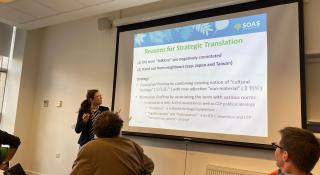
Breadcrumbs navigation
The best books to understand how populism works
This article was originally published by Shepherd, a book discovery website where authors and experts share their favourite books. We recently embarked on a partnership with Shepherd to showcase our members' books, so we're pleased to share the next article. Look out for further articles by BISA members in the coming weeks. Try their bookshelf on international relations or politics to browse a wide range of recommended books.
Why am I passionate about this?
I am Lecturer in US Foreign Policy at Queen Mary University of London, and I work on issues of national security and identity, political rhetoric and the role of the everyday in shaping politics, especially media and popular culture. I have written extensively on American politics and US foreign policy over these past years with two published monographs and more than a dozen articles in peer-reviewed academic journals, plus a couple of op-eds and multiple TV and radio appearances. My most recent research project explores the role of populism under the Trump presidency and its political impact in the United States.
I wrote...
The Politics of Antagonism: Populist Security Narratives and the Remaking of Political Identity

What is my book about?
How did populist narratives mobilize Trump voters and enable "America First?" My book argues that populist rhetoric primarily appeals to voters' insecurities and emotions, remaking the concepts of 'Us' and 'Them' in the process. Linking insights from political psychology with research in political communication and drawing on a comprehensive range of sources, including interviews, speeches, social media, and news media, the book examines the populist remaking of political identities.
The book demonstrates how populist security narratives labeled progressives, political opponents, immigrants, racial justice activists, and key institutions of liberal democracy collectively as "enemies of the people," reframing them as an internal Other. This populist security imaginary threatens the foundations of liberal democracy, emboldens political extremists, and legitimates the use of political violence.
The books I picked & why
What Is Populism?

Why did I love this book?
A perfect book for anybody looking for a short and accessible yet very comprehensive introduction to the subject of populism.
What I particularly liked was how engaging the writing was (not a given with political scientists!) and how it offered key insights on real-world political developments, from Trump to Brexit. I found it an ideal starting point for learning more about populism and it greatly helped my own understanding of the concept.
Strangers in Their Own Land: Anger and Mourning on the American Right
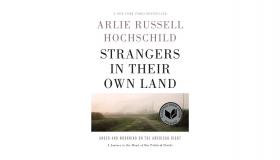
Why did I love this book?
I found this to be a fascinating book. It offered real insights into the everyday lives of working-class individuals in rural Louisiana, especially their emotional states, anger, frustration, fears, hopes, and aspirations.
Reading the book, I felt like I was actually sharing the lives of the families that Hochschild observed, getting a real understanding of how they saw the world and why they might want to vote for a figure like Donald Trump. For my money, it is sociological writing at its best.
All the King's Men
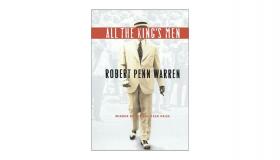
Why did I love this book?
This book is maybe my favorite novel ever written about politics and the lengths that some men are willing to go in the pursuit of power.
It features a memorable cast of characters, most importantly, of course, the figure of Governor Willie Stark, the quintessential populist politician, who manipulates others for his own gain and demonstrates a total lack of morals. Set in the 1930s, the story of Stark’s rise to power and eventual downfall always strikes me for how contemporary it feels and how many parallels it offers with the populist politics of our own time.
Peril
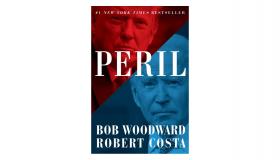
Why did I love this book?
Of the three books written by legendary Washington Post journalist Bob Woodward about the Trump Presidency (Fear, Rage, Peril), I thought Peril was the one that best demonstrated the danger that Trump’s style of populism, his authoritarian tendencies, and his post-truth rhetoric presented to the survival of liberal democracy in the US.
I was fascinated by the insider’s look Woodward offered; he makes you feel like you are in the room in Washington DC, when some of the most momentous developments in American politics in recent times unfold, from the Covid-19 pandemic, to the Black Lives Matter protests, and the January 6th riot at the Capitol—great and scary book.
Hoax: Donald Trump, Fox News, and the Dangerous Distortion of Truth
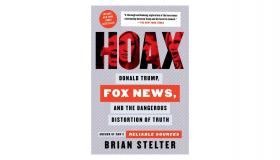
Why did I love this book?
Written by a journalist and media expert in a very engaging way, Hoax made me think about populism in a different way. It’s not just about politics, but about how we consume information, what we perceive of as facts, and the role of the media in confirming our own biases and creating our reality.
I learned a lot about media dynamics in general and the mechanics of Fox News in particular, and it showed me how the boundaries of politics, entertainment and media increasingly overlap and become less and less distinguishable from one another.
Photo by Iñaki del Olmo on Unsplash

